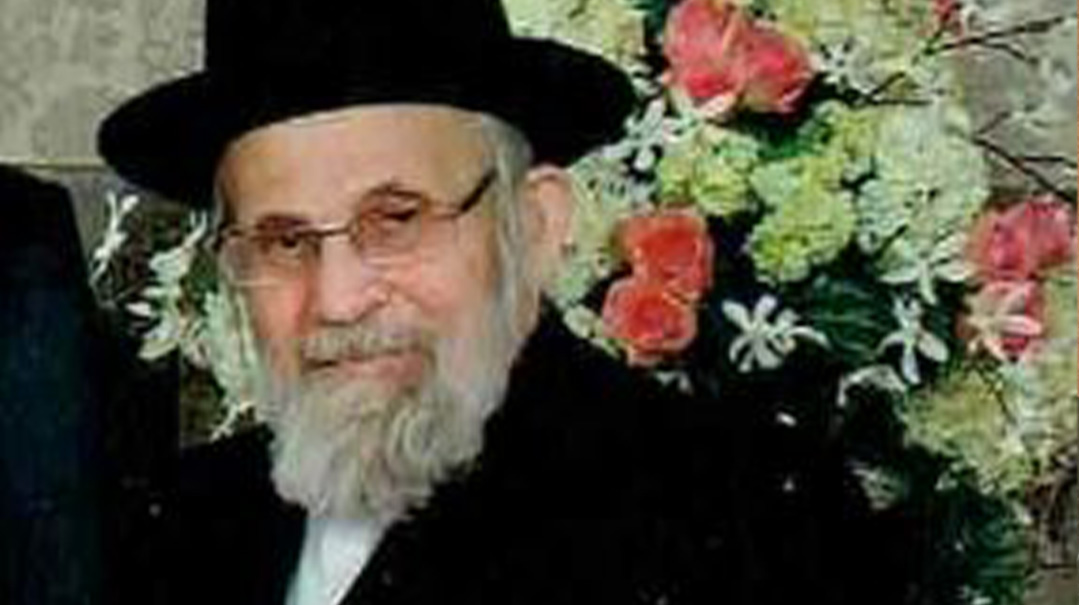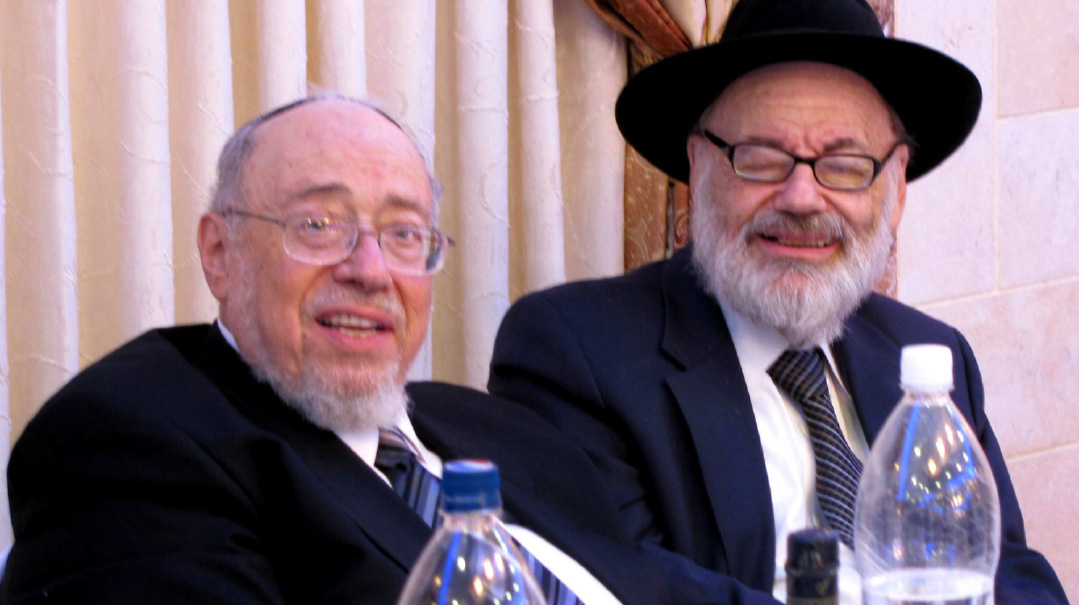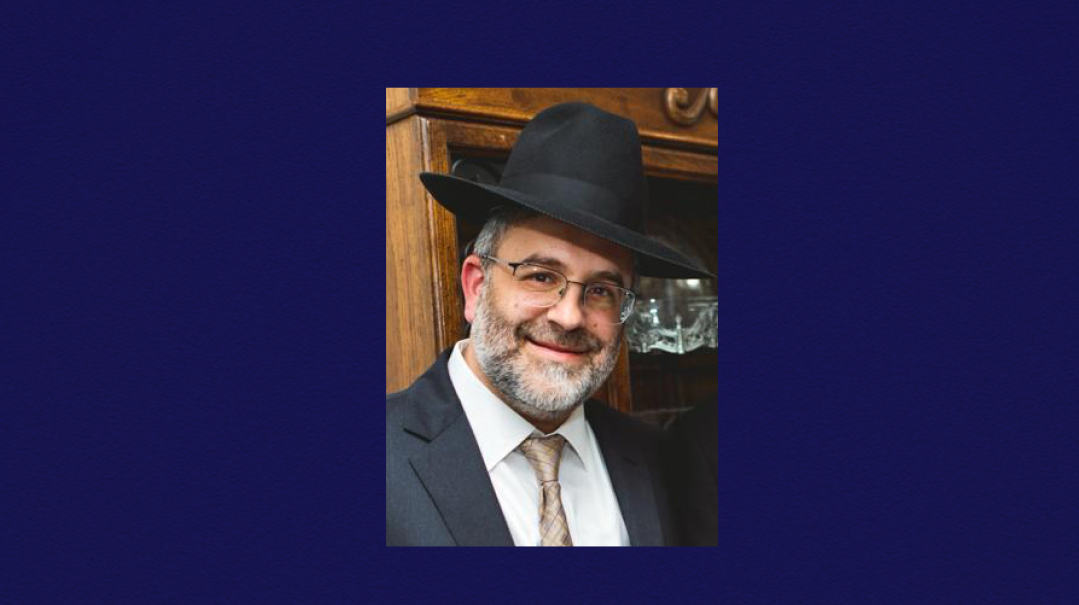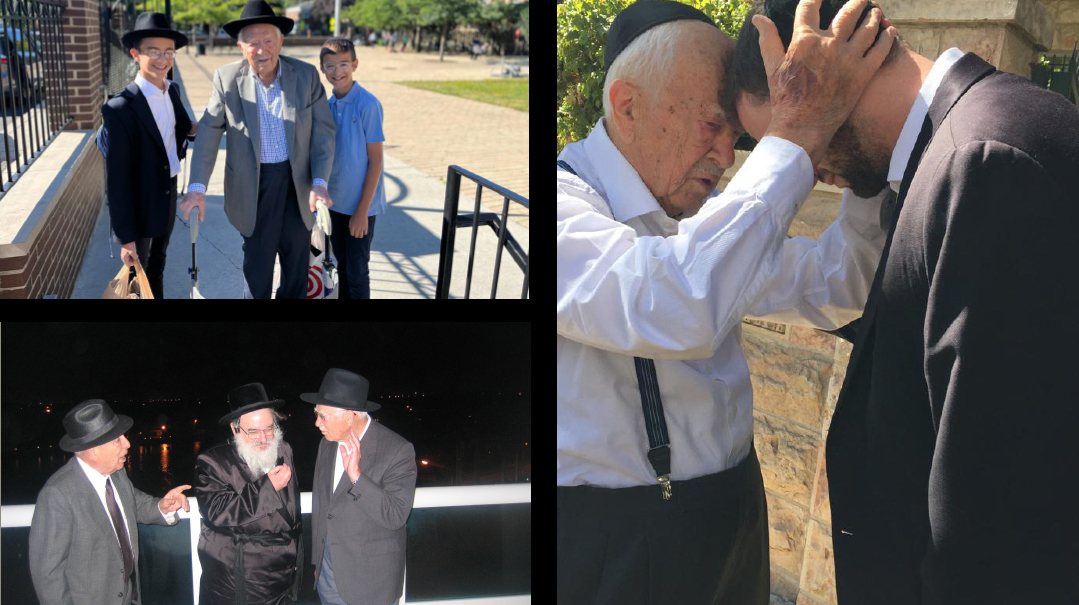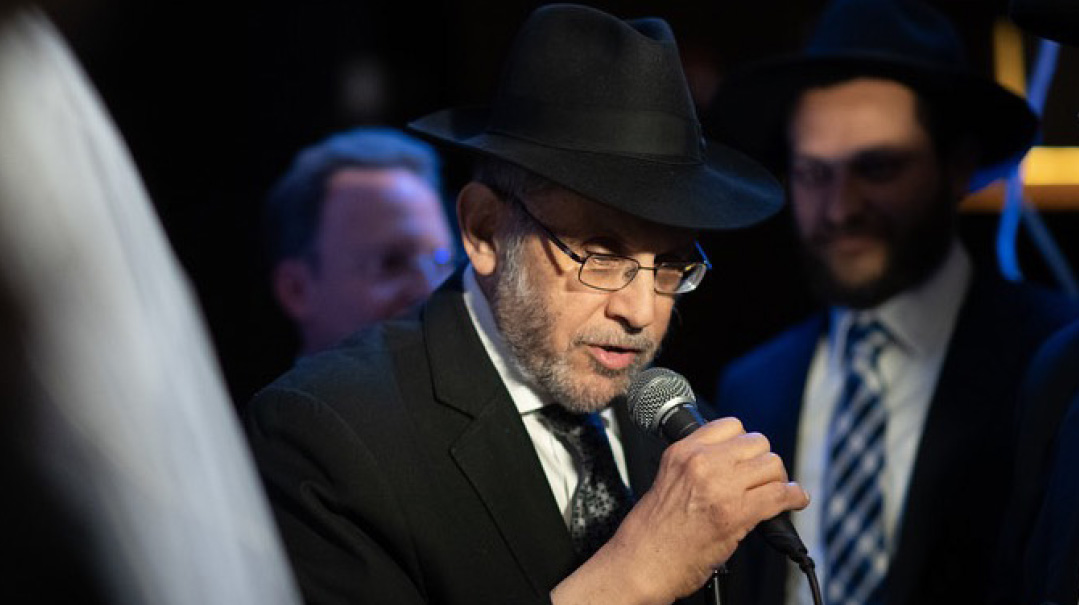Launching Us High
| June 17, 2020“We could feel her joy, her sense of privilege.” Mrs. Devorah Steinberg ignited two generations of British girls

Mrs. Shari Dahan, pupil
I was in one of the early classes in our school, the pioneering Beth Jacob school of North West London. My memories are rich. We once hid from a senior teacher instead of going to her class. Mrs. Steinberg was evidently upset at our lack of derech eretz, but she did not say a word to us for 24 hours, and only then admonished us, with great calm. She served as a living example of what she taught us, how to be “maavir al middosav.”
The school was small and we felt so much love and care. I remember Mrs. Steinberg driving me home when I had a fever.
When I was in ninth grade, I lost my bubbe. Mrs. Steinberg called me in to say that she had known my grandmother and I could speak to her whenever I wanted. At 14, I felt awkward, but when I came home from seminary, I began to consult this wise woman. She was my guide through shidduchim, and when I met the right one, I brought him round to see her. Her table was piled with seforim; she was preparing for Friday’s assembly.
I called Mrs. Steinberg whenever I needed guidance. The right pasuk and soothing words rolled off her tongue. I was astounded at her depth of compassion and wisdom. When my father was sick and then niftar, she shared with me how she’d coped with losing her husband.
Mrs. Steinberg was a rock when one of my twins suffered health challenges and she accompanied us along his journey, constantly davening. When we celebrated their double bar mitzvah, she traveled to Manchester (four hours each way) to be with us.
When Mrs. Steinberg visited Manchester, she gave a shiur for alumni. I thought how incredible it was that we had been taught on this high standard in school. I realized that although we may not have listened well at the time, she’d sown seeds of emunah and bitachon, creating reserves for us to draw on later.
Mrs. Steinberg was a modern-day Sarah Schenirer. When I got married, her father created a lovely gematria for our names — a proficiency Mrs. Steinberg inherited. I called her before every Rosh Hashanah to hear her gematria for that year. This year, (5)780, she told me, has the same gematria as “Rachum V’chanun Atah” [You are merciful and gracious].
There can’t be many principals who take care of you from when you’re 11 until they leave This World, but that was what Mrs. Steinberg did for me.
Sue Lachman, teacher
When I went for my interview as a sports teacher, Mrs. Steinberg told me that she would prefer to employ me rather than a non-Jew but I must cover my hair while at school, as did all Jewish staff at Beth Jacob. I thought that was easy, but I had no idea that I couldn’t wear my track suit, or that my arms needed to be covered.
During those first weeks, in a kind, gentle way, Mrs. Steinberg told me about not wearing pants and covering my elbows. She’d never say anything in front of other people, and she didn’t blame me for not knowing.
It was her nonjudgmental attitude that helped nudge me and my family to become baalei teshuvah. I’ll never forget her beaming face and the whole school standing up for me when I came into assembly with a sheitel on.
I remember preparing for our first proper Pesach, with all the cleaning it entailed. Mrs. Steinberg was wonderful. She took me aside and said, “You know, no one is going to eat in the airing cupboard.” That helped me stay grounded and understand what I really needed to focus on.
I owe Mrs. Steinberg too much to express in such a short note. I am eternally indebted to her and love her dearly.
Mrs. Mashi Tescher, pupil
I was in London Seminary almost 40 years ago, when Beth Jacob had just been founded. Although it was a fledgling school, Mrs. Steinberg’s leadership gave it special status. We all wanted to do our Teachers’ Training in BJ under Mrs. Steinberg.
I’ve since gone on to become a mother and a teacher in several schools and seminaries in Stamford Hill. About eight years ago, when I was teaching at Satmar Girls School, Mrs. Steinberg spoke at a Teachers’ Training day.
I cannot forget how passionately she implored the teachers to understand that “a mechaneches is not just a teacher; she’s an example and a role model. She’s someone whom students have to aspire to imitate.”
She told us that she tells her students to “take her with them” when they go shopping. “When you try on a new garment in the store, ask yourself, ‘What would Mrs. Steinberg say?’ Then she told us about a woman who told her that she was in a department store changing room and she overheard two schoolgirls in the next cubicle saying, ‘Are you sure this is okay? What would Mrs. Steinberg say?’ ”
Chaya Gittel Ryness, granddaughter
After my grandfather was niftar, I accompanied my grandmother on summer vacation in Switzerland a few times. I used to watch her daven — Shemoneh Esreh took so long! Later in life, when I needed something important, I asked my grandmother to daven for me. I had a feeling Hashem listens to her tefillos.
On vacation she spent much time on the porch, enjoying the scenery, reading her seforim, or writing the school play for the next year. When I went to the mall with her on Sundays, my friends would skedaddle into stores or hide behind the clothing racks. It was like there were two separate people, my bobby in my home life, and Mrs. Steinberg in school.
As a kid, I would often bring a friend along to her house. She once said to my friend, “You’re coming to the high school next year. In school I’m Mrs. Steinberg; but at home I’ll still be Chaya Gittel’s bobby.”
At the Shabbos table, my grandmother enthusiastically participated in Torah discussions. “I just saw this in a sefer, I read this…” she’d say. She got so excited each time my brother bought her a new sefer. We had tickets to go to London for Pesach this year. I wanted myself and my children to experience Bobby’s unique glow on Seder night again. Sadly, by Pesach she was gone.
Mrs. Melanie Klyne, teacher
The first time I ever spoke to Mrs. Steinberg a”h was just before we moved to London from Glasgow in May 1991.
I looked forward to seeing the school my girls were raving about, the school that our late beloved mentor, the Manchester Rosh Yeshivah ztz”l, had recommended.
I made an appointment and rang the bell at the old building on Finchley Road, my two-year-old in the stroller. Mrs. Steinberg herself came downstairs to open the door. I fell in love with the school — it was a proper grammar school but so very warm, friendly, and heimish. And I fell in love with Mrs. Steinberg, as she chatted easily with me while my toddler scribbled with the pencil and paper she’d provided.
I went on to teach in the school, and became 12th-grade mechaneches. Seminary applications were, of course, a major project. I was once summoned to Mrs. Steinberg’s office. One student had been asked to produce her 11th-grade transcript along with her application. This recorded some of her shortcomings that could have affected her chances of being accepted.
Mrs. Steinberg instructed me to write a letter, to be attached to the application form, emphasizing how much this pupil had changed over the last year. The seminary accepted her, and this girl went on to build a beautiful home in Eretz Yisrael where she supports her husband’s learning.
On another occasion, a hardworking, sincere pupil with sterling middos had not been accepted by a certain sem because they felt that she wasn’t suited for their high academic standard. None of the teaching staff had been able to sway this decision.
Mrs. Steinberg called the head of this sem, pointing out the student’s middos tovos, her excellent behavior, and refined demeanor.
“But she’s not suited to our academic standard,” countered the seminary head.
“I don’t understand you. This is exactly the type of girl you should be looking for,” Mrs. Steinberg repeated. She challenged the very premise of the seminary rules, because to her, academic success was not the way she measured her girls’ success. The young lady was accepted.
Mrs.Tanya Grunewald, pupil
I was about eight or nine years old when Mrs. Steinberg taught us Chumash. Instead of a Chumash test, she had us all answer questions orally, every Friday. She brought along cookies, which she decorated with each child’s name.
If you were one of the lucky ones who could answer all the questions she asked you, you got your cookie. This was in the days before everything was personalized — that homemade cookie that Mrs. Steinberg had glazed your name on was the most exciting thing!
Rifka Goldberg, pupil
Mrs. Steinberg viewed the school as her home, in a sense, and took pride in us as her daughters. That’s why it upset her when we weren’t up to scratch. Before every production, we were warned, “No jeering in my house!” because Mrs. Steinberg would not tolerate any unrefined whooping from the audience, only ladylike applause.
I remember walking to school with my friends. When we were late, Mrs. Steinberg stopped her car to give us a ride. Then there was the school custom of singing songs together every Friday afternoon, English songs too. The singsong generated warmth, brought the student body together.
Once, when she had to rebuke me, she said, “Somebody like you would not do such a thing, it doesn’t befit you. I can’t punish you, because I don’t believe you could have done that.”
A Lifetime of Service
Mrs. Devorah Steinberg’s father was the legendary Reb Feivish Feingold, a recognized illui who learned b’chavrusa with Dayan Yitzchak Yaakov Weiss (the Minchas Yitzchok) and Rabbi Gedaliah Rabinowitz. In addition to Reb Feivish’s encyclopedic Torah knowledge, he was a genius in mathematics, in classical and modern languages, and the sciences. Early space missions sought his expertise in calculating the position of the moon — he answered them in detail using astronomical calculations based on the Rambam.
Her mother, Mrs. Feingold, was a model homemaker with an outgoing, upbeat personality. The Feingolds invested deeply in the education of their three daughters.
Devorah was born in 1938, and raised in Manchester. She attended non-Jewish schools, but her father taught her Tanach early in the morning, before he left to his business. When she wanted to go to the newly formed Gateshead Sem, his firm principles would not allow it. “My daughters are raised within our home and do not leave until their marriage. I will teach you all you want to know.” And he did.
Devorah was a gifted student who acquired a tremendous breadth and depth of knowledge in Tanach, tefillah, and hashkafah with this unique arrangement. According to her friends and sisters, she was also the “life and soul” of the Manchester Bnos groups and the frum girls’ social lives.
At first, Reb Feivish did not want her to teach, as he felt that teaching should not be a salaried job but done “lishmah,” but when an evening cheder asked 17-year-old Devorah to teach a challenging class of nine-year-old boys, he relented. She was the 17th teacher of the year, but with her strong spirit and creative methods, the “uncontrollable” boys settled and learned.
At 20, Devorah married Reb Moshe Steinberg, a choshuv and refined young man who also had his heart in chinuch. They moved to Gateshead.
Several roshei yeshivah and maggidei shiur recall Mrs. Steinberg’s innovative teaching methodology of Chumash when she taught them in second grade. She was also deeply involved with hospitality and chesed projects, arranged drama productions for the local girls, and taught kallahs.
In 1978, Reb Moshe Steinberg was invited to found a new Jewish boys’ high school in London (Golders Green), a very different community from the yeshivah world of Gateshead. The family moved, and Mrs. Steinberg began to teach there too. Her outstanding strength of personality and firm Torah principles led to an invitation to lead a new venture, the community’s first Bais Yaakov high school.
From its beginnings in 1980 with 12 students, Mrs. Steinberg led and nurtured the school and its pupils, forging a path based on our mesorah. She retired in 2014, after which she delivered shiurim in various seminaries. She left an indelible mark of yiras Shamayim and love for mitzvos upon thousands of Jewish homes.
Reb Donny Kaufman, son-in-law
I was a yeshivah bochur in Gateshead in the 1970s. There was a bochur who arrived in yeshivah from somewhere off the frum map, but quickly became part of the chevreh. He had a sister who was engaged to a non-Jew, and he tried to dissuade her from marrying her fiancé. Once, in desperation, he wrote to her, “Please come to Gateshead, just for a weekend, to see what you’re missing out on.”
She wrote back, four pages long, giving reasons why she saw no point in doing so.
My friend showed this letter to the mashgiach, Rav Moshe Schwab. Rav Schwab showed it to Rav Mattisyahu Salomon, and they advised the bochur to keep persuading his sister to come, even if it seemed pointless.
But who would host her and talk to her?
The mashgichim of Gateshead Yeshivah arranged for my mother-in-law to invite this young lady and talk to her. My mother-in-law sat up late, arguing with this girl over Shabbos. The girl was an intellectual, but she’d met her match. After that weekend, the girl decided to transfer her university course to a university near Gateshead.
Years later, my mother-in-law was in Yerushalayim when someone stopped her. It was a lady pushing a carriage, with two children walking alongside. Mrs. Steinberg’s delighted comment was, “This is exactly what you told me you didn’t want to become!”
Elisheva Sharman, pupil, then teacher
As students, we stood in awe of her. Mrs. Steinberg was a mechaneches from a previous generation who held her school in a very firm grip, but we felt her warmth too.
When I was in my first year of grammar school, my parents had a simchah in Eretz Yisrael and wanted to take me along. It meant missing school for a few weeks. I was terrified to ask Mrs. Steinberg for permission, but when I did, she said warmly, “You’ll gain more from walking the streets of Yerushalayim than from being in school.” When I came back, she called me in and asked what I had seen and learned.
Her ninth-grade Chumash lessons brought the parshiyos to life. We loved to hear about life through Mrs. Steinberg’s eyes when she taught us tefillah. Once, when she was due to deliver a Chumash class, she had reason to detain me in her office instead. “How can I teach when a top girl is slipping?” She said she was too upset to punish me then; how I trembled overnight! The next day, she informed me that I’d already been punished enough and she was sure I had thought it over and done teshuvah during the night. It was a very powerful lesson.
When we went away on a school Shabbos, the girls gathered while Mrs. Steinberg bentshed licht. It seemed to take a very long time. She then told the girls that she davened for each one of them every Friday night!
When I got engaged, Mrs. Steinberg glowed as she wished me mazel tov. “When your mother-in-law called me for information,” she said, “I could feel that she sincerely wanted the right one for her son. As soon as I hung up, I said Tehillim that it should work out for you.”
She took inspiration from everything. A cab driver from whom she asked directions in Eretz Yisrael became the source of her oft-repeated advice to us: “Yashar yashar, l’maalah l’maalah.” [Go straight and up.]
Perele Turrover, teacher
At 19, I joined the staff at BJ Grammar School. Mrs. Steinberg took a major risk with her young teachers, yet she reaped the dividends — we were green, but ultra-devoted. She begged us not to get involved in our pupils’ lives, not to take things upon ourselves, not to try and fix the world, but to just send on any problems to those more qualified. That’s something that’s stayed with me in my teaching career.
Tzirel Lerner, pupil
I remember Mrs. Steinberg walking into our class when a teacher was absent. She asked where we were holding and just continued to teach. She seemed to know everything — Chumash, Navi, halachah.
But it wasn’t only kodesh lessons that interested Mrs. Steinberg. She once entered the room when our sports teacher was absent. She announced that she was offering us three choices: “I can teach you Chumash, or I can give you a mussar derashah, or we can go to the park. I can’t play a game there with you, but we can go for a walk.”
We chose to walk to Golders Hill Park, where our sports were often held in the summer. Mrs. Steinberg enjoyed watching us have a good time.
Purim jokes were frowned upon if they mocked teachers, but when we planned a trick that Mrs. Steinberg approved of, she went along with it. At a sign from her, our entire grade spun groggers in the pin-drop silence of an assembly. At the pre-Purim assembly, Mrs. Steinberg joined in the teachers’ play, usually as the main part.
The daily Minchah assembly brought the school together in a very formal way. After every girl had finished davening Minchah and sat down, Mrs. Steinberg finished her own Shemoneh Esreh, turned her shtender to face us, and spent a few minutes explaining Tehillim. Then, each girl had a turn to read the Tehillim, pasuk by pasuk.
When it was your turn, you had to go to Mrs. Steinberg in her office prior to that, so that the Tehillim would be read fluently and no one would be embarrassed by reading incorrectly in front of the school. This also gave her an opportunity to talk to each girl individually.
Mrs. Caroline Burke, teacher and former deputy principal
On a cold, wet February morning in 1988, I arrived at Bais Yaakov Grammar School to interview for a position as a maths teacher. Walking through the front door, I immediately felt the unique warmth of the school that I continued to feel throughout my 32 years at Beis Yaakov. Mrs. Steinberg was key in creating that atmosphere and made me feel so comfortable and at home.
After I’d been in the school a few weeks, I asked another member of staff why there were so many girls standing in line outside Mrs. Steinberg’s office at break and lunchtime. (I assumed they’d all done something wrong!) I was told that, on the contrary, the girls all wanted to tell Mrs. Steinberg if they had a problem or something to celebrate. The staff felt the same way. Mrs. Steinberg’s motto was “a happy staff room makes a happy school.”
Mrs. Steinberg always knew the right response. I remember the call I made to her very early in the morning to tell her that I had a new granddaughter but the baby was in intensive care (baruch Hashem, she recovered completely). She told me to go straight to the hospital to support my daughter and not worry about school. I listened, of course, and my daughter was so grateful to have me there.
I became deputy principal at the school, responsible for secular studies. Mrs. Steinberg and I used to meet at 8:30 every morning for a “briefing.” Sometimes there was little to report so we used to chat about anything and everything. After Mrs. Steinberg retired, I’d visit her at home so that we could continue our chats and catch up on all our news.
I learned so much from Mrs. Steinberg’s fine middos. She was not just my headmistress, but my mentor and my friend.
Henna Kaufman, daughter
My mother spent the first 20 years of her married life in Gateshead. She was an outstanding teacher of second-grade Chumash, both boys and girls. Her students from those years can still sing the dikduk songs and remember the way the Chumash came to life through my mother’s original teaching methods.
Our home in Gateshead was always “happening,” as my parents welcomed many guests: bochurim, seminary girls, and others.
Rav Moshe Schwab ztz”l, mashgiach of the Gateshead Yeshivah, asked Mummy to arrange a gemach wedding catering service to help families defray the rising cost of wedding expenses. My mother and two other ladies formed a committee. They arranged for an entire wedding menu for hundreds of guests to be cooked from their own small kitchens.
Mummy got every piece of silver-plated cutlery polished the night before that first chasunah. An aunt from abroad commented on how it shone like mirrors. The idea was so successful that it’s the default wedding option in Gateshead until today.
At that time, Gateshead had no educational services for special children, so they attended public school. My mother was asked to tutor a young special-needs child who could not hear or speak. She was looking at a book with the girl, and the girl began to jump up and down with excitement when she saw a picture of an Xmas tree. My mother became very upset and she begged the principal to accept her, offering to have the little girl in her class.
“You’re letting your heart rule your mind,” the principal said disapprovingly.
But upon my mother’s insistence and with a lot of parental input, this child was eventually accepted. She blossomed in the Jewish educational environment and has raised a wonderful frum family. My mother wanted children to meet special children when they were young, so they’d learn to accept them easily and naturally.
My mother ran Bais Yaakov groups and produced plays in Gateshead, and cooked for the Pirchim Siyum for boys all over England when it was held in Gateshead. She also had the job of cooking a siyum seudah for the community for the yahrtzeit of their previous rav.
When my father was invited to take up a position in London, he didn’t know whether they should leave the special yeshivah community of Gateshead. He consulted with Rav Rakov, the Gateshead Rav, and the Rav replied “I think you should go. And Golders Green will chap your wife mit beide hent.”
The rest is history.
Mrs. S., pupil and staff member
Mrs. Steinberg is what I imagine Sarah Imeinu would have wanted our generation to look like. When she spoke to us about baking challos, cooking for Shabbos, cleaning for Pesach, we could feel her joy, her sense of privilege. She loved Yiddishkeit so deeply, it’s what excited her. With her unadulterated she’ifos and hashkafos, she was an ideal role model.
To the students she was imposing, but to the staff, natural and unassuming. She showed the staff respect, whether they were 19-year-old former students or secular women.
There was a BJ pupil who was childless for many years and kept in touch with Mrs. Steinberg. She told me that when she told Mrs. Steinberg she was expecting, our principal danced around her kitchen with joy.
Ruthy Friedman, teacher
My mother remembers when Mrs. Steinberg taught my sister in Menorah Primary School before Beth Jacob opened. She gave children whose mothers had just given birth the coveted “job” of writing on the blackboard, and when reviewing a lesson, she transformed the classroom into a Snakes and Ladders game with chairs turned upside down.
We had one student who was in a challenging home situation. I remember Mrs. Steinberg telling her that when her mother yells, it’s like other mothers speaking normally. This wise perspective helped the girl cope.
S.L., pupil
Mrs. Steinberg was an imposing, sometimes awe-inspiring presence. Yet she cared. I once came into school nervously after having had quite a drastic haircut, which I regretted. Mrs. Steinberg noticed me on my way in, and complimented me.
Another time, I had trouble sleeping and when I mentioned it to Mrs. Steinberg she suggested that I try sudoku, sharing with me that it helped her when she couldn’t fall asleep!
Tefillah was treated with utmost importance. I remember how Mrs. Steinberg walked into the hall for Minchah and there was some mess on the floor from leftover food. She got down on her hands and knees to clean it before we started davening.
Like many others, I davened for her when I heard she was ill. When I heard the sad news, I could almost hear her say, “Every tefillah counts, you never know why something happened but I guarantee your tefillah isn’t lost.”
(Originally featured in Family First, Issue 697)
Oops! We could not locate your form.







